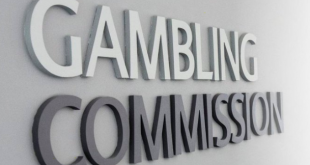Esports Entertainment Group (EEG) is confident of its cost reduction abilities despite a sharp fall in revenue in the 2023 fiscal year, as it continues to navigate an extensive corporate restructuring.
The company reported overall revenue of $23m between July 2022 and June 2023, a drop of 60% from $58.4m recorded the year prior. On the other hand, its net loss was cut down significantly by 68% from $102.2m to $32.3m.
Trading on the Nasdaq as a B2C igaming firm and a esports betting B2B provider, with a focus on the US in the case of the latter, EEG has reorganised its business over the past few months, notably cutting down on the B2C side of operations.
Group CEO Alex Igelman, commenting on FY23 trading, emphasised that EEG has conducted a ‘comprehensive examination’ of its organisation with a focus on predicting the trajectory of the igaming and esports sectors.
He continued: “Through this process, we conducted a deep dive into our business from top to bottom and pinpointed operations and contracts that weren’t profitable, leading to decisive actions that have set us up for a promising future.
“Although the restructuring came with one-time expenses, we are confident that the long-term advantages will significantly outweigh these costs.”
As referenced by Igelman, a particular focus of the group has been reducing expenses and general costs, which has proven largely successful according to the group’s latest trading update.
Costs of revenue fell 64% to $8.8m (2022: $24.2m), whilst sales and marketing expenses dropped 77% to $5.9m ($19.8m) and general and administrative expenses fell 44% to $28.9m ($22.4m).
Igelman projected that the company’s restructuring efforts will further cut operating expenses by $4m, with the company having reduced liabilities ‘by approximately $51.8m’ since January 2023.
The streamlining of EEG’s business model has chiefly revolved around a rollback of its B2C sportsbook operations, notably including the sale of Bethard for €9.5m in February 2023.
This sale was followed by the closure of esportsbook Vie.gg – which had been active in the UK, Spain and New Jersey – and the liquidation of Argyle Entertainment, the operator of the SportNation and Red Zone brands.
Lastly, the firm has also sought to upgrade its esports platform by integrating Oddin.gg’s iFrame solution with Igelman citing this development as boosting its ability to offer traditional esports events and ‘short cycle wagerable events’.
Igelman continued: “This period of time in the company’s evolution marks a pivotal shift and new beginning, allowing us to leave behind past barriers and shape a path that maximises our potential for success, which we believe will drive significant revenue growth and value for our shareholders.
“Our recent focus has turned towards developing initiatives to further broaden the Company’s esports and iGaming offerings in order to create a comprehensive, end-to-end offering of online betting options to our customers.”
He concluded: “Overall, we believe the Company-wide initiatives we have undertaken this year will place us in a stronger financial position, and at the forefront of the rapidly growing esports wagering market which is poised to grow significantly by 2025.
“Moreover, the addition of Oddin.gg’s iFrame supports the Company’s global expansion strategies, given Oddin’s established international presence. As a result, I could not be more excited by the outlook for our business.”









